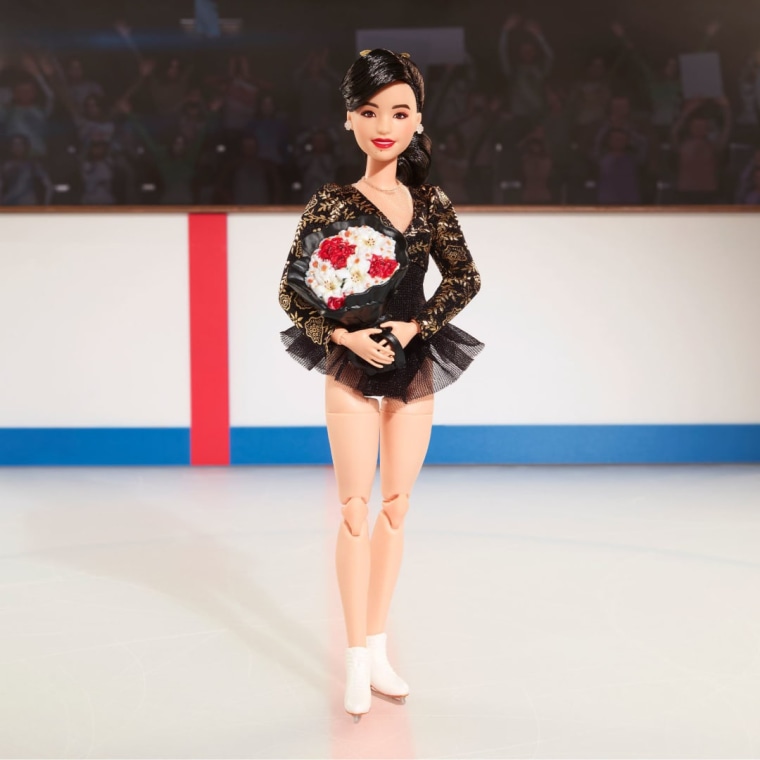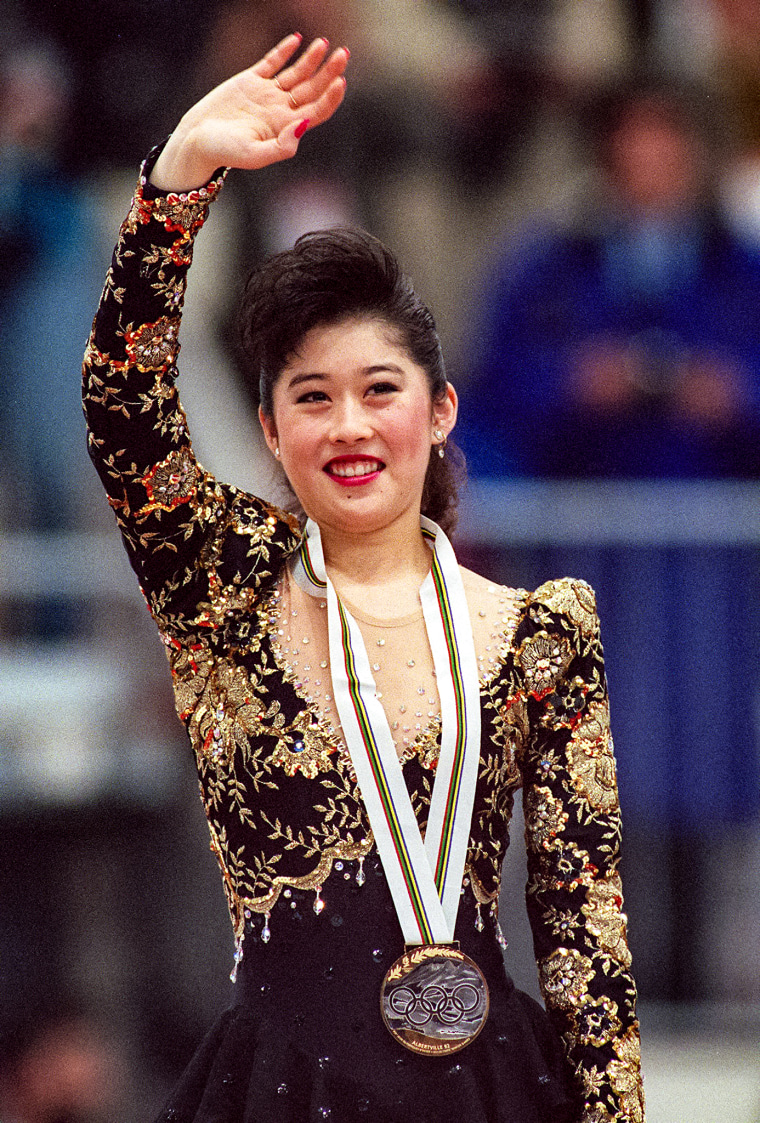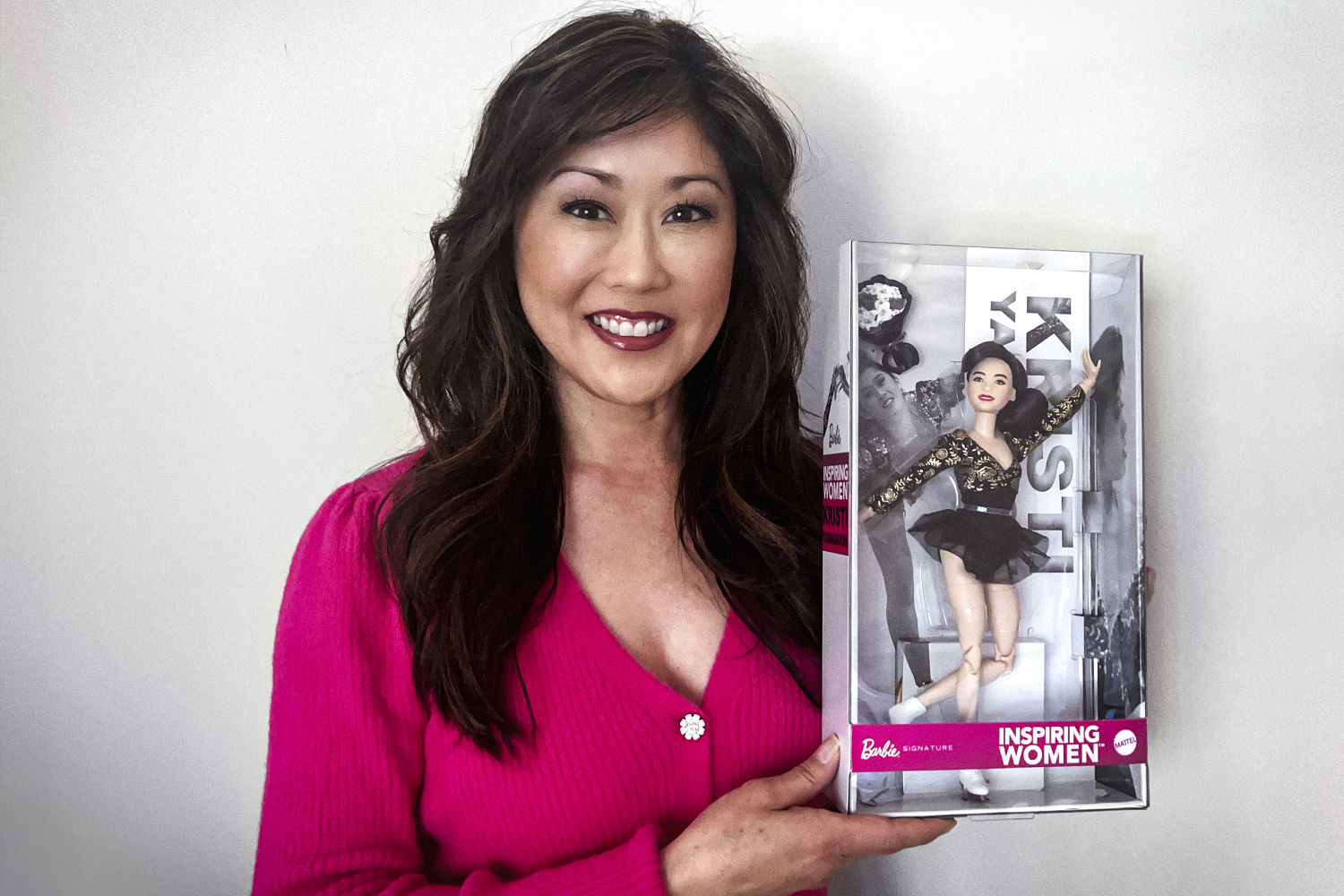Barbie is paying homage to trailblazing figure skater Kristi Yamaguchi with a new doll.
The launch of the Yamaguchi doll, which went on sale Wednesday, coincides with the start of Asian Pacific American Heritage Month in May, according to a news release. The doll’s black leotard with gold accents is inspired by Yamaguchi’s costume from the 1992 Olympic Winter Games, where she became the first Asian American woman to win an individual gold medal in figure skating.
“I think it’s important to see representation. I think growing up with Barbies and playing with them, you really did, as a child, use your imagination and create them to be whoever you wanted them to be,” Yamaguchi told NBC News of getting her own doll. “I think the more important and impactful stories you can maybe feed their minds with is really, really great.”

The doll joins several others in the “Inspiring Women” line, which pays tribute to history-making women including Celia Cruz, Bessie Coleman and Anna May Wong. Yamaguchi, a two-time world champion and Olympic Hall of Famer, said she worked with the Barbie team, sending close-up photos of the fabric and other details from her iconic outfit. The result, she said, was remarkably accurate.
“The design team was really incredible even down to the shape and the look of the skates and the little logo on it,” she told NBC News. “They even got the poof hair with the bangs!”
Revisiting her iconic dress made for a sentimental moment, Yamaguchi said.
“I only competed at the Olympics in that dress. … Even the world championships a month and a half after the Olympics, I wore a different dress,” she said. “That dress is so specific to that gold medal performance. It’s emotional in a way that it just brings back all of the memories from that moment.”
Yamaguchi’s win at the Olympics came during a time when there were few mainstream, Asian American pop culture role models. Yamaguchi herself said she was aware that in figure skating, most of the previous U.S. champions did not look like her. But she gravitated toward one particular skater of Asian descent.

“There was Tiffany Chin, who was the first Asian American U.S. champion in the early ‘80s,” she said. “She was one of my idols and I think we had that connection because we both shared the Asian American heritage.”
By the time Yamaguchi took home the gold medal, the Asian American community was quick to embrace her.
“Learning how much of the Asian American community rallied behind me and took pride in and supported me, I was like, ‘Wow, this is incredible,’” she said. “I think the reflection definitely helped me … develop and find a voice. It’s taken years to really feel comfortable in being a voice for Asian Americans.”
For the skater, who was 20 years old and thrust into the public eye, the support also came with a certain degree of pressure.
“All of a sudden being thrown into the spotlight, just in general. And then not knowing, ‘Oh, my gosh, how do I act? What do people want from me or expect from me?’ I think that’s a little intimidating,” she said. “You don’t choose to be a role model, but I think you embrace that opportunity. I was ready to embrace it and say, ‘OK, I can even do some good with this.’”
Not all of Yamaguchi’s experiences after the Olympics were positive, however. Her win also came during a time of anti-Japanese sentiment, prompted by a booming Japanese auto industry amid a struggling American one. Just a decade prior, 27-year-old Vincent Chin was killed by two white autoworkers who had mistaken him for being Japanese and stealing their jobs.
And much of the media during that time harped on the skater’s “marketability,” she said, often speculating that her ethnicity could affect her ability to draw endorsements.
“I didn’t do this for endorsements. But in some ways, it is also hurtful, saying that you’re maybe not worth as much as someone else because of your ethnicity, even though the accomplishment is the same,” she said.
Yamaguchi said she kept herself busy and pushed through the noise. Since her Olympic career, she has continued to support other Asian American skaters, including Olympians Alysa Liu and Karen Chen. She’s also an author and advocate, serving as the founder of nonprofit Always Dream, which is aimed at increasing children’s literacy. Mattel also announced that Barbie will split a $25,000 donation between Yamaguchi’s nonprofit and the organization Asian Sisters Participating in Reaching Excellence, which focuses on empowering women.
Source: | This article originally belongs to Nbcnews.com










